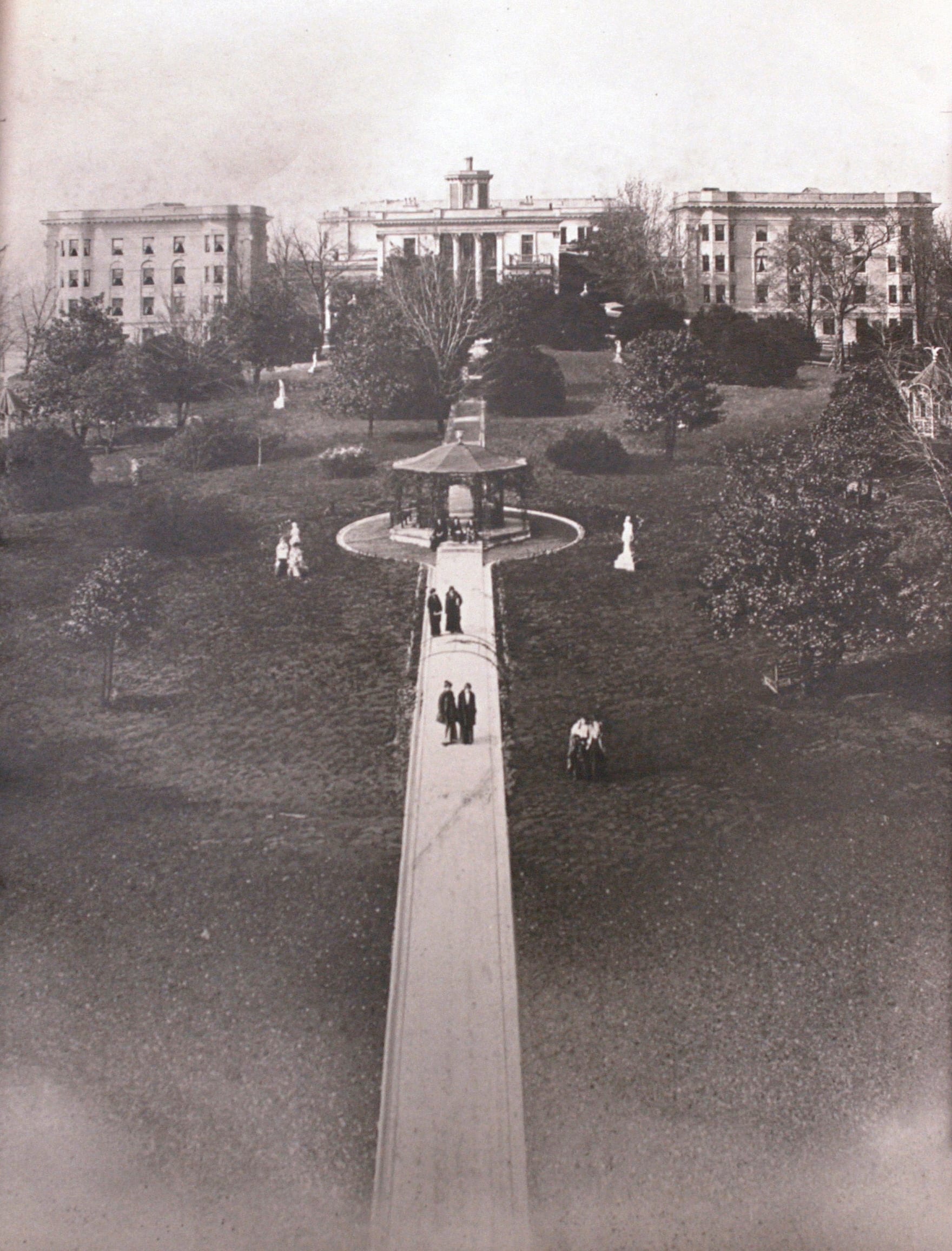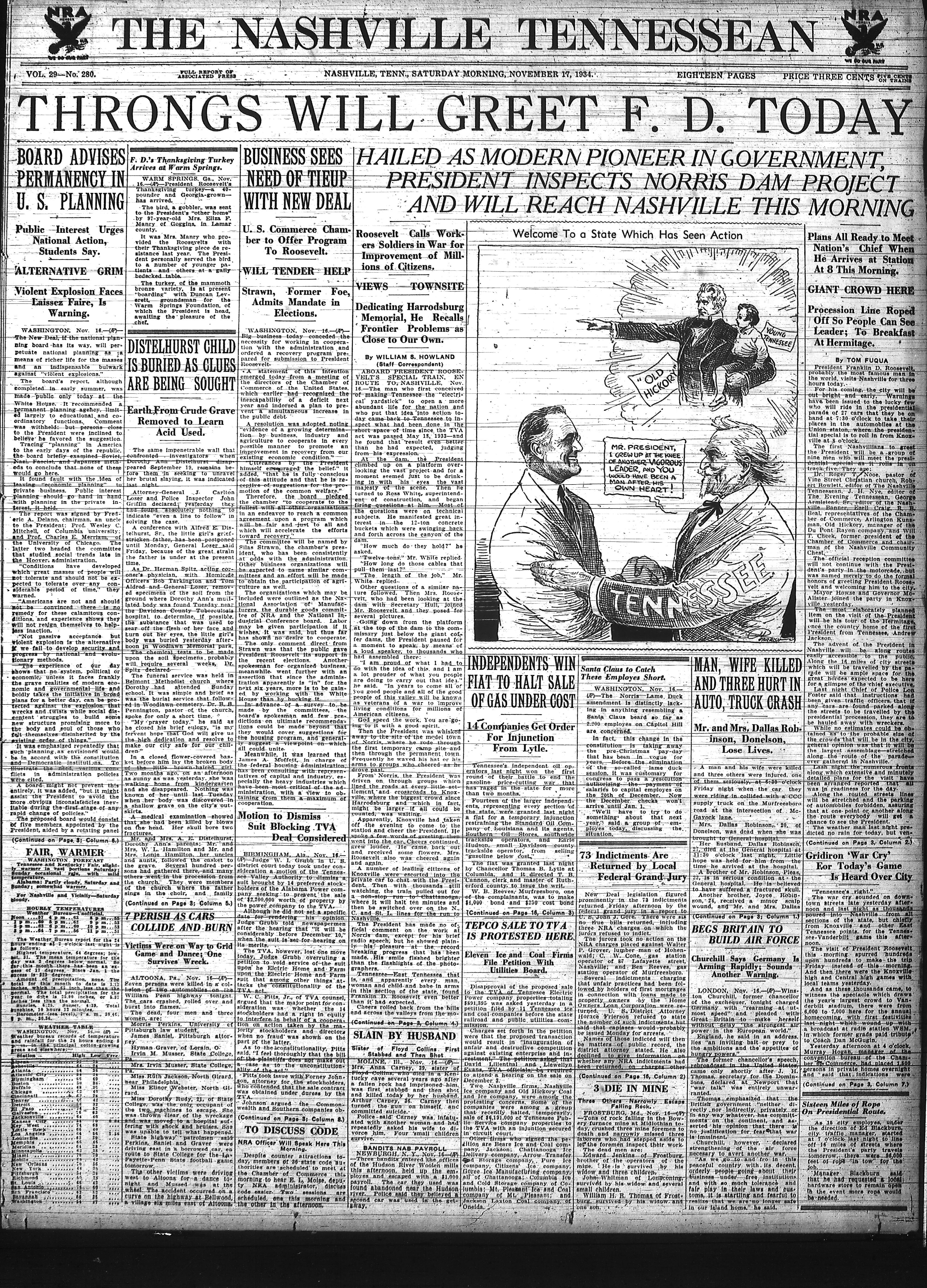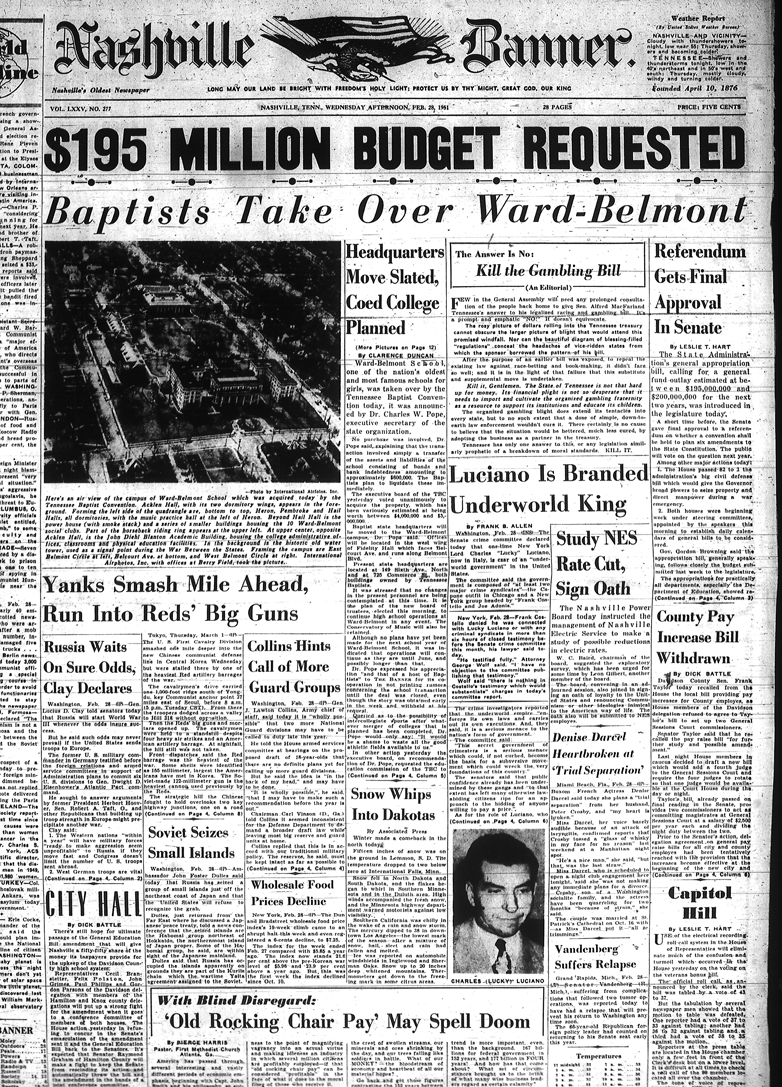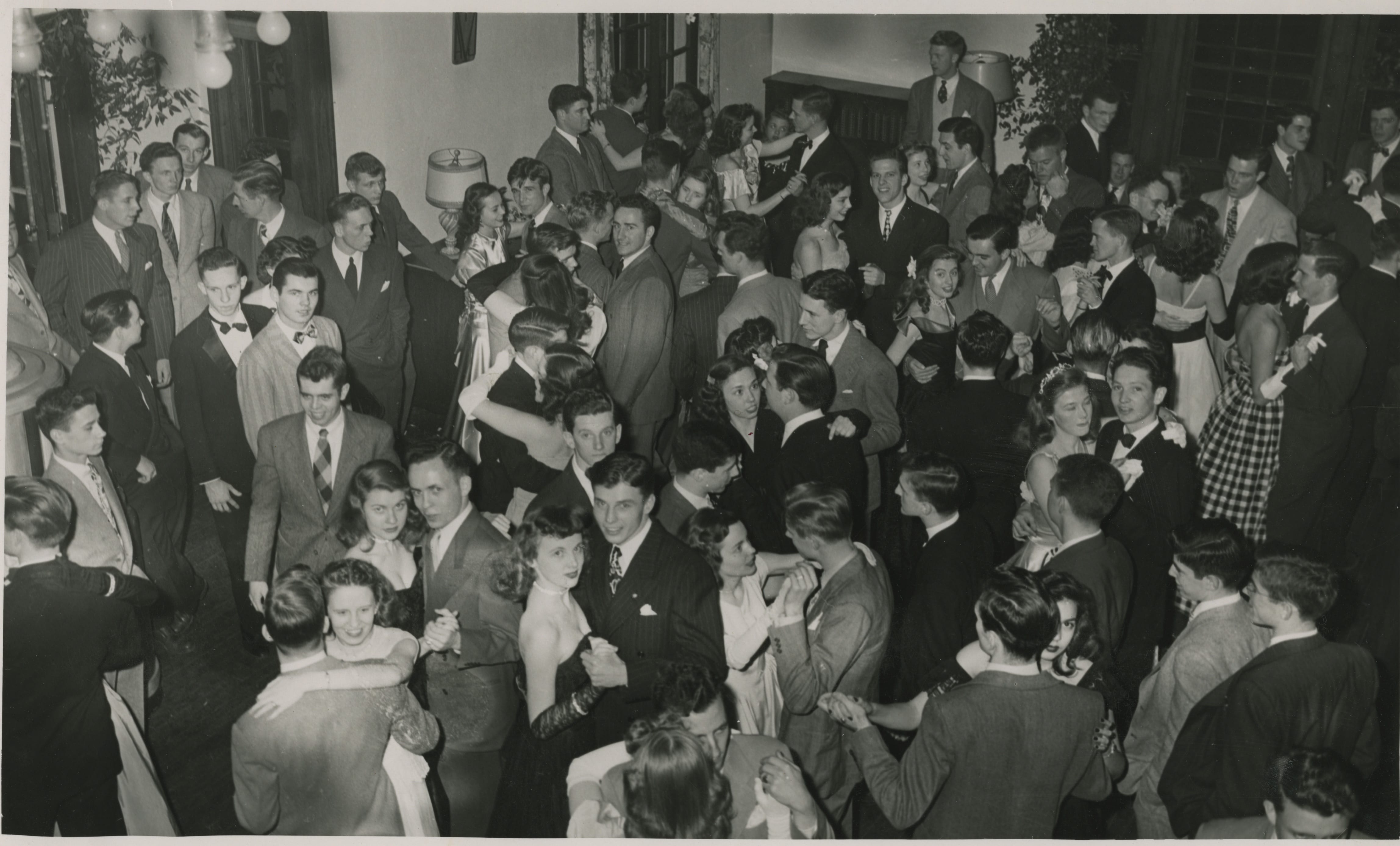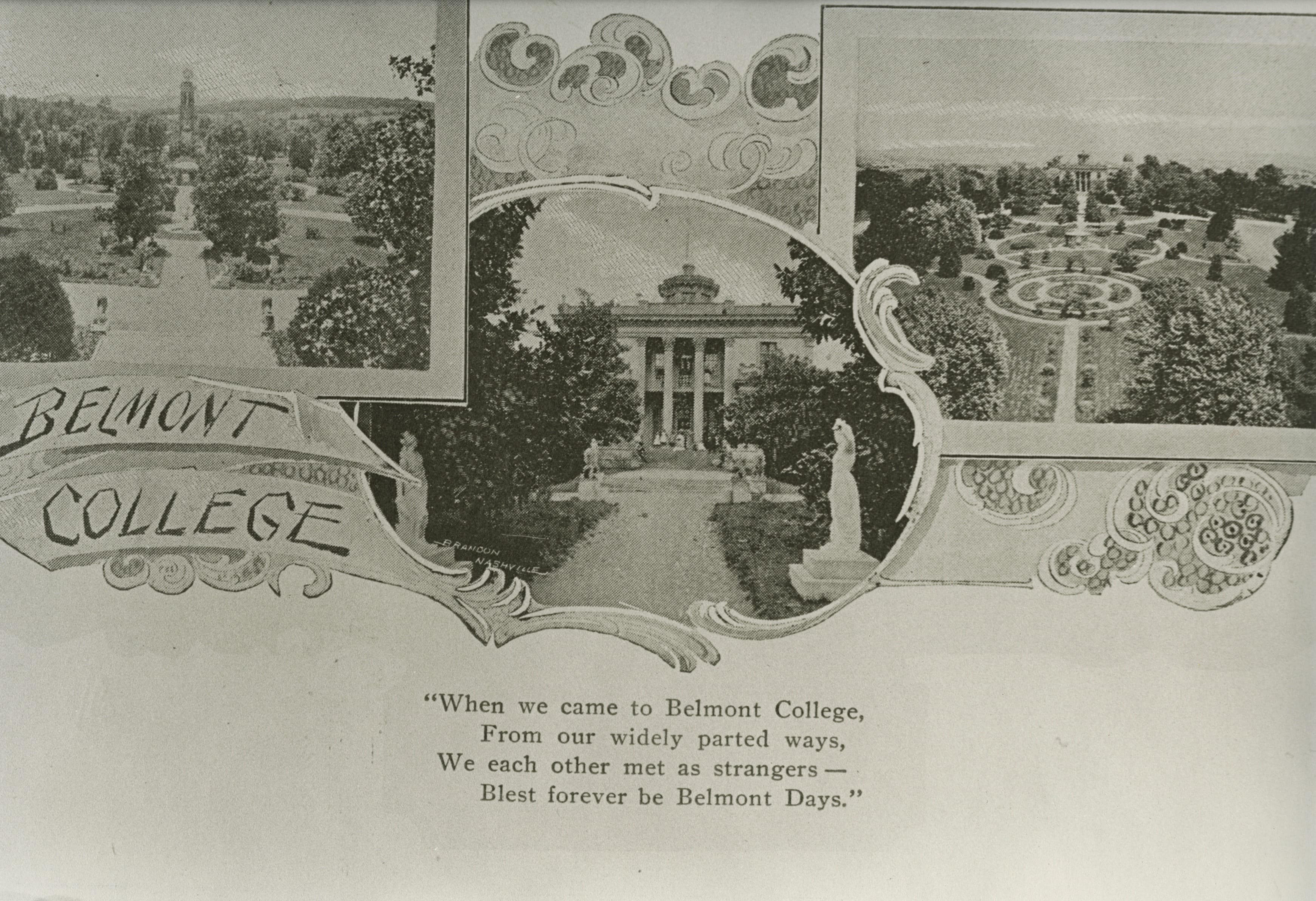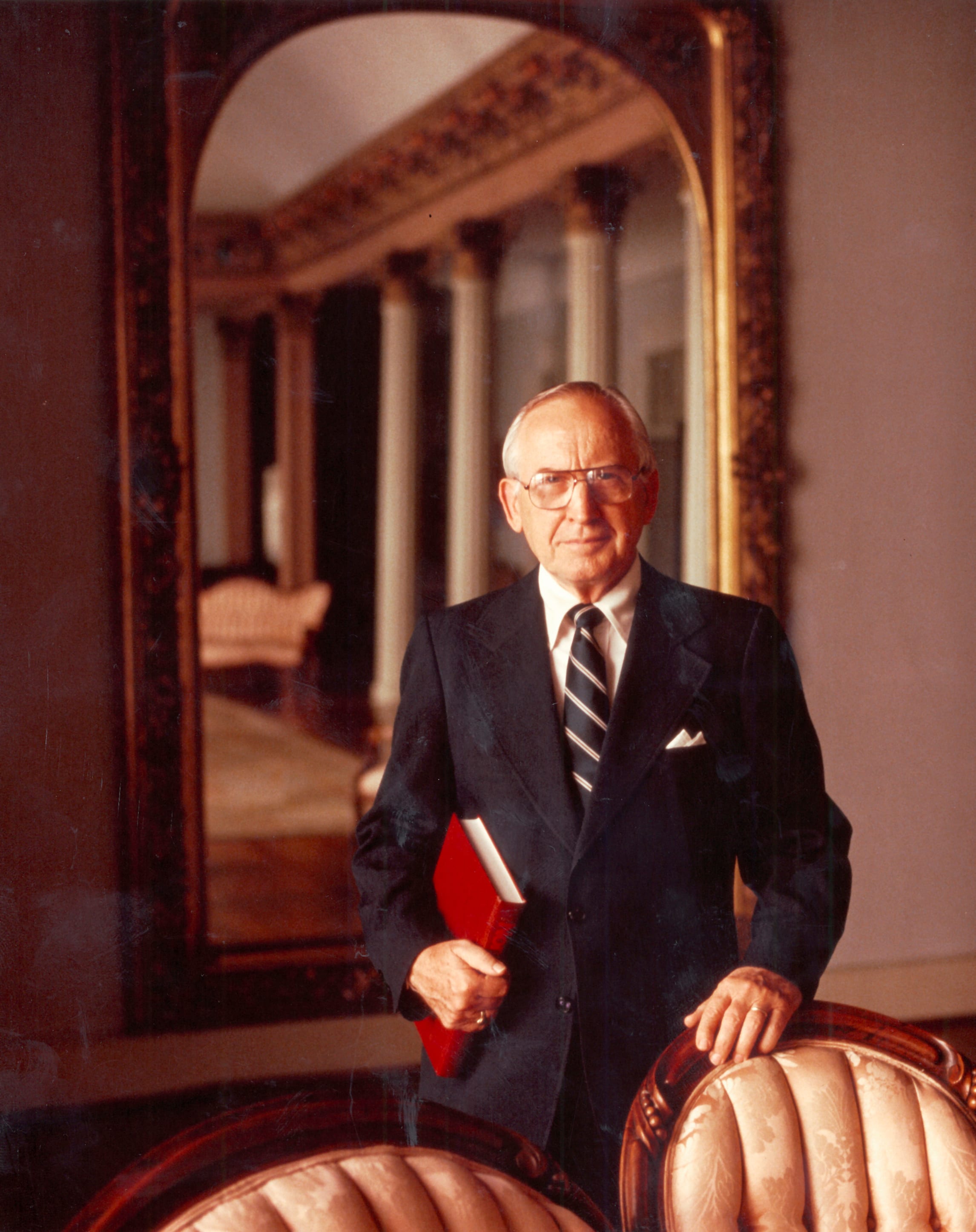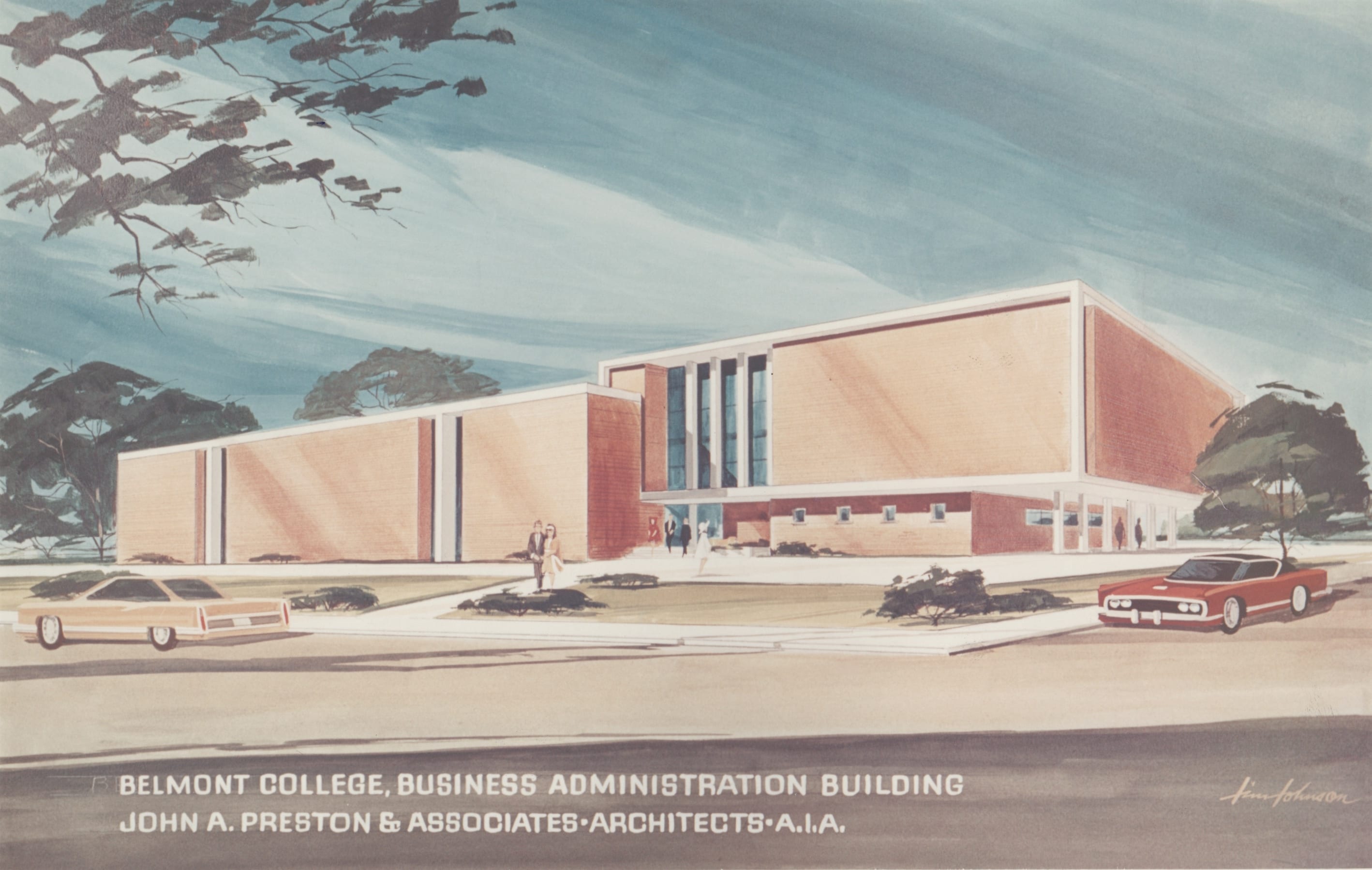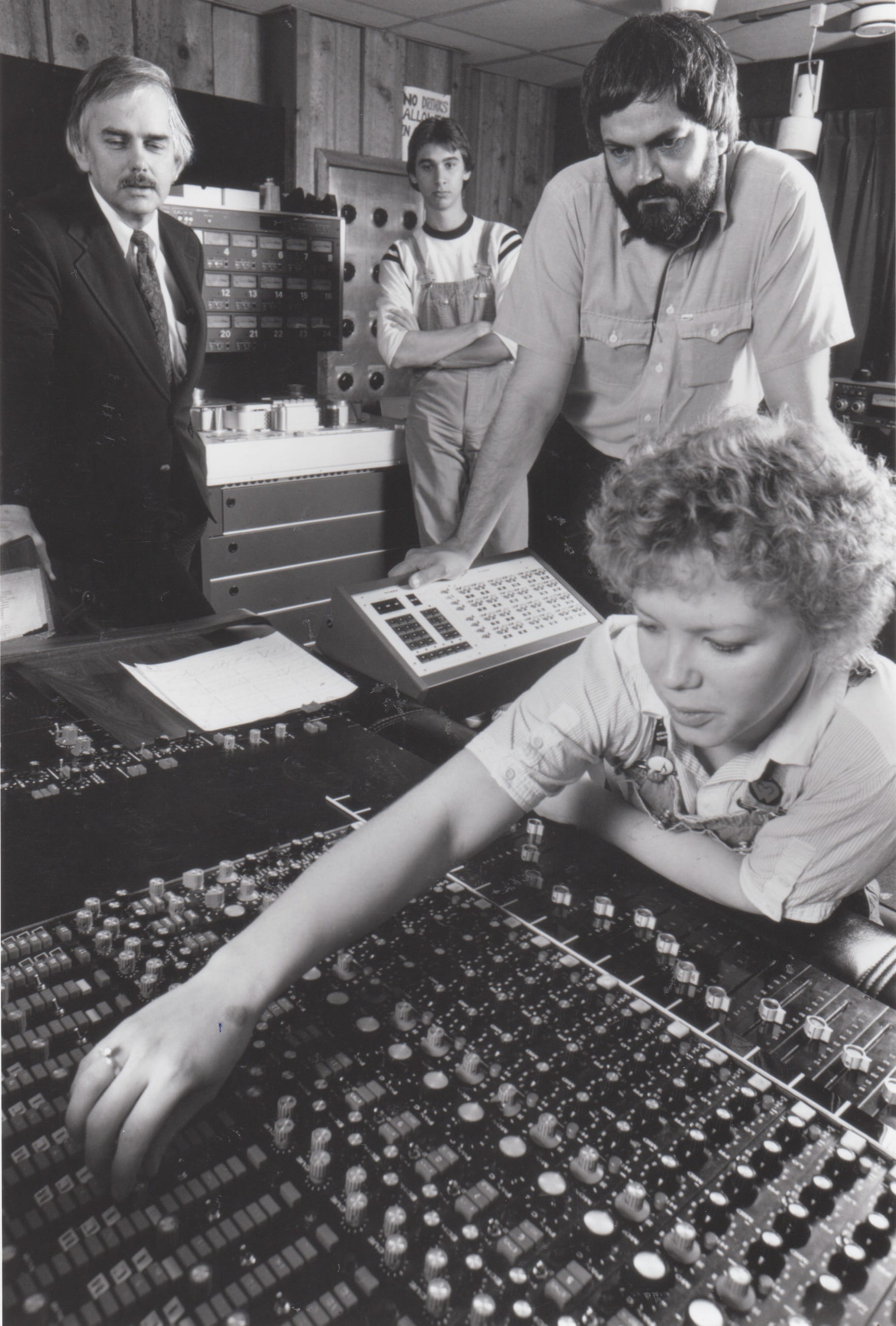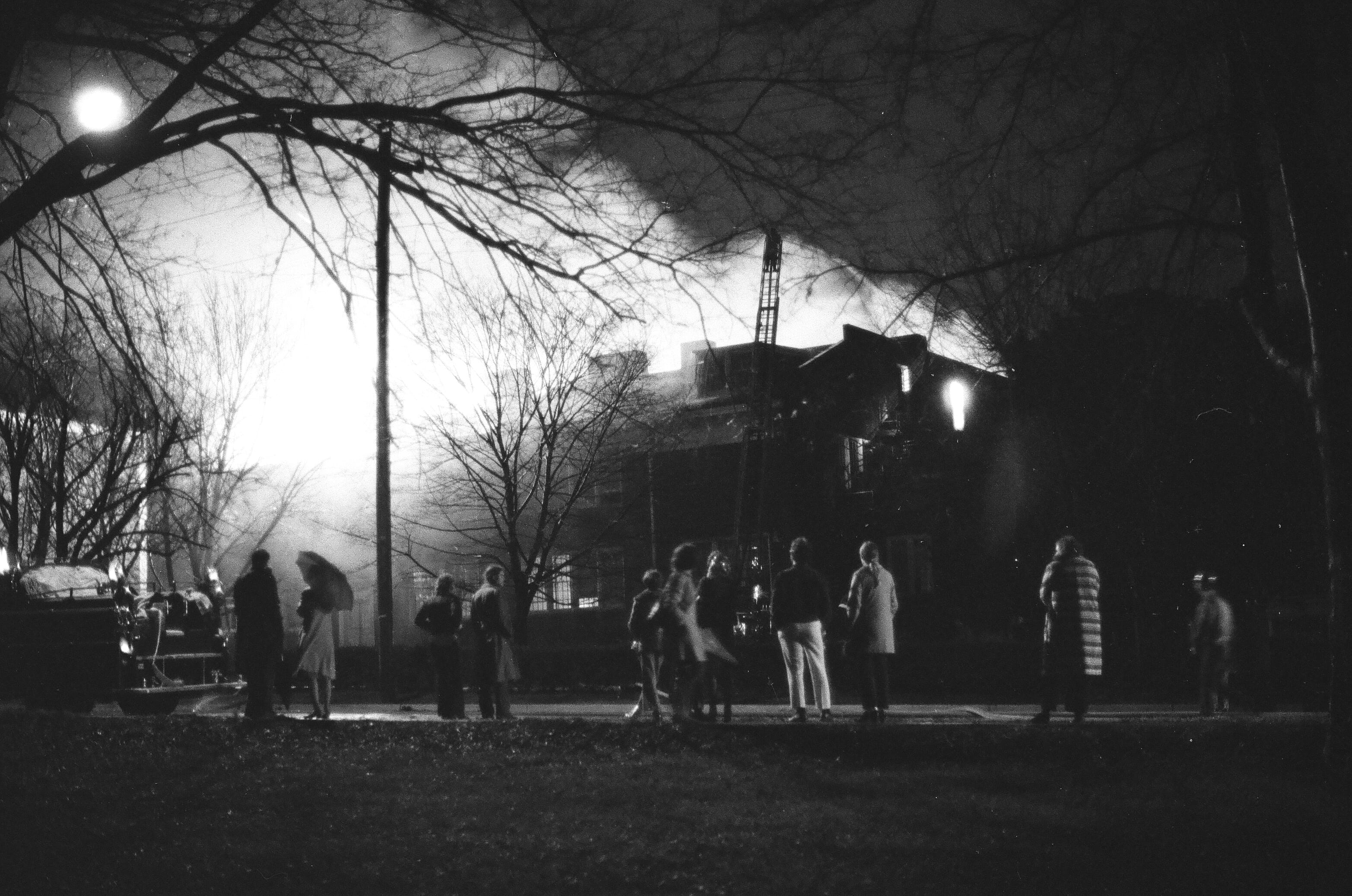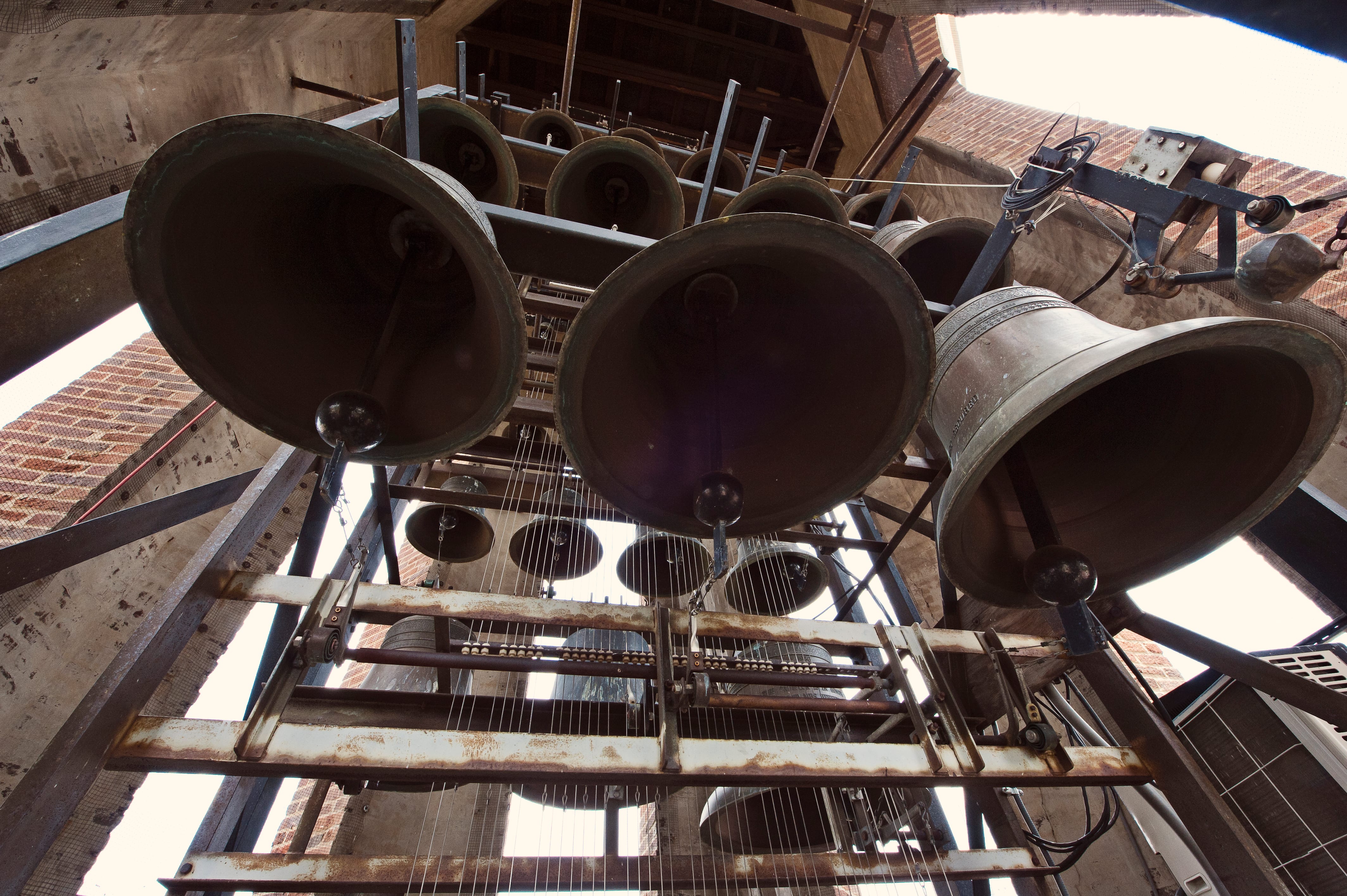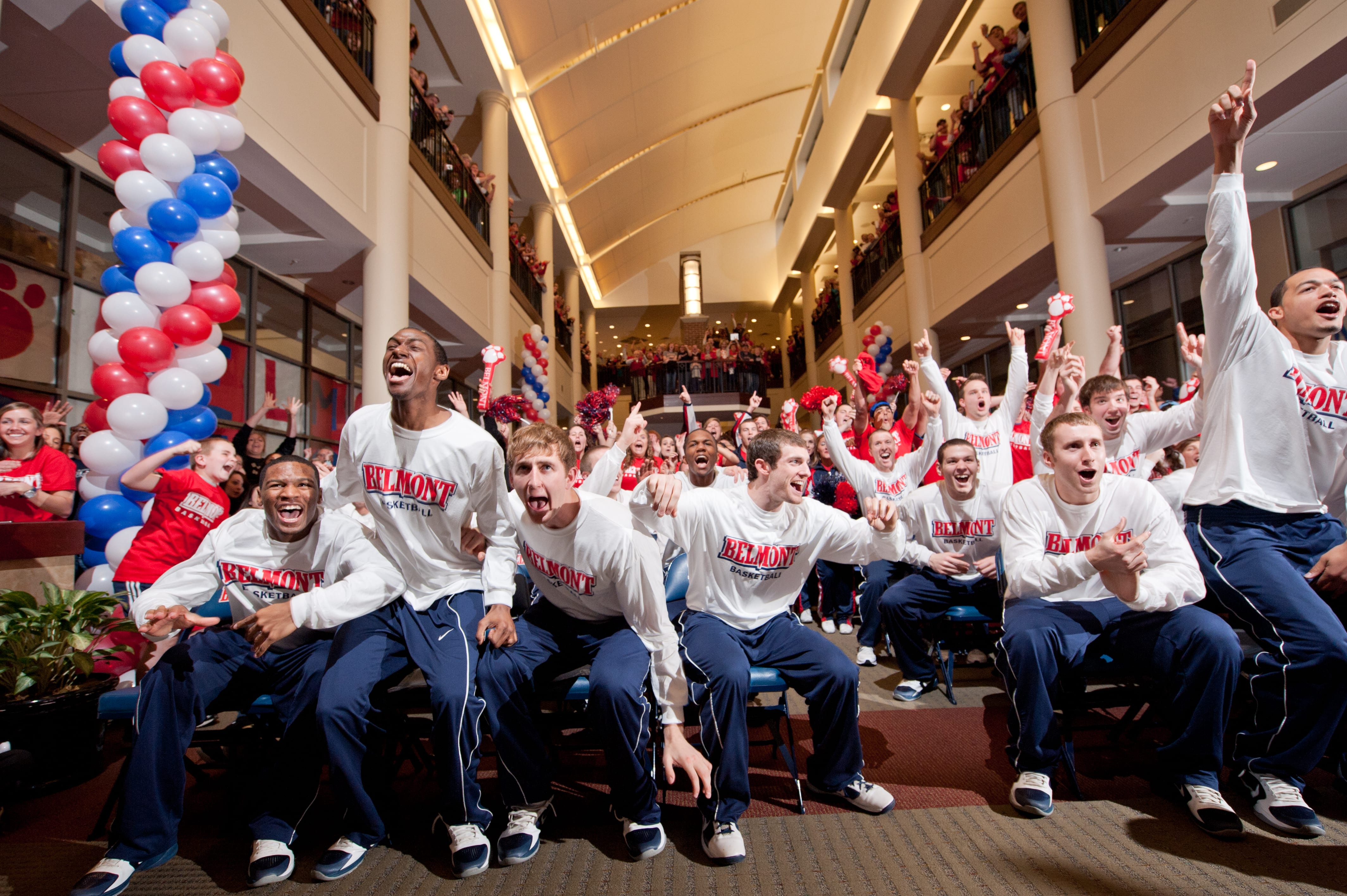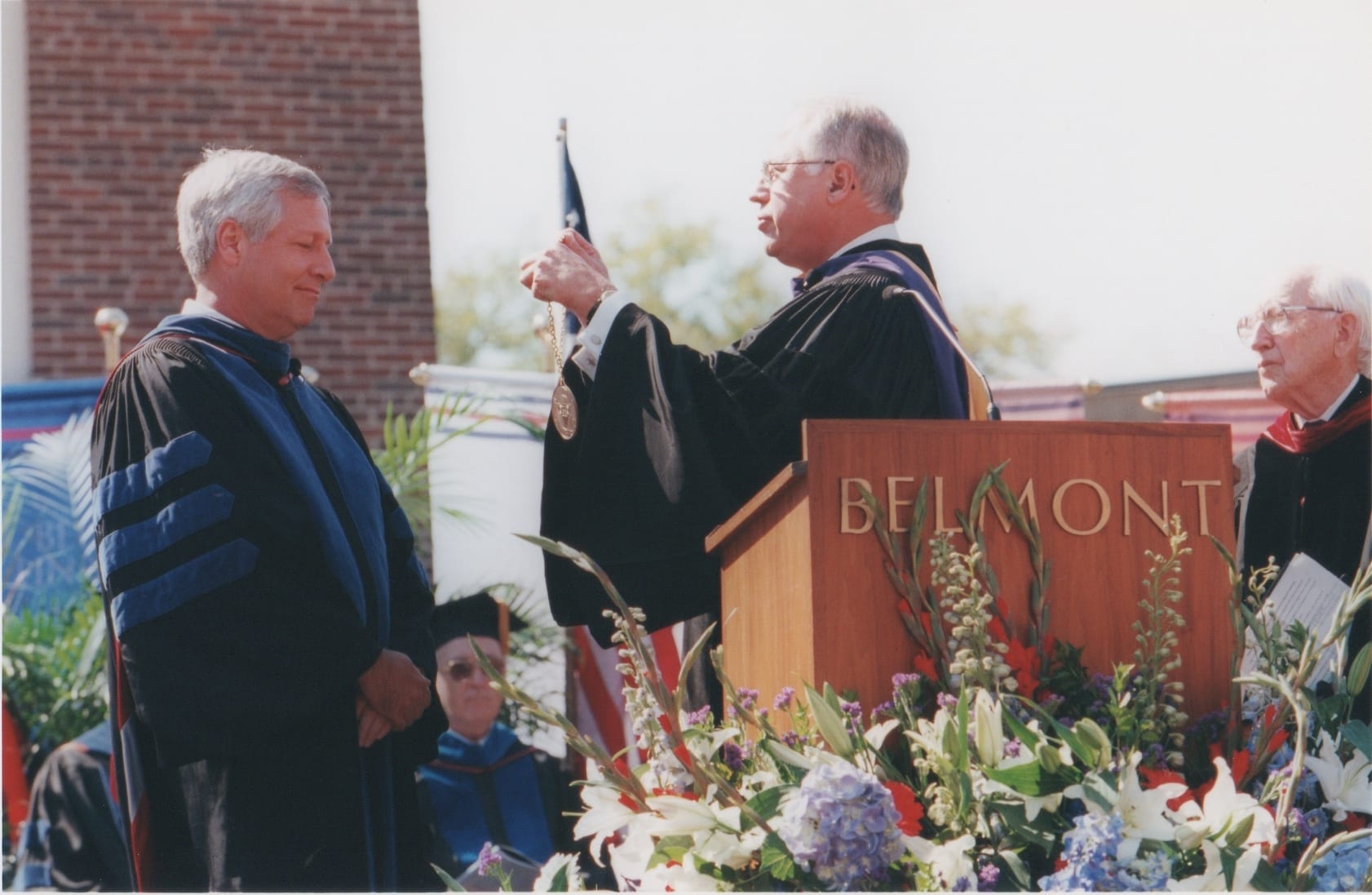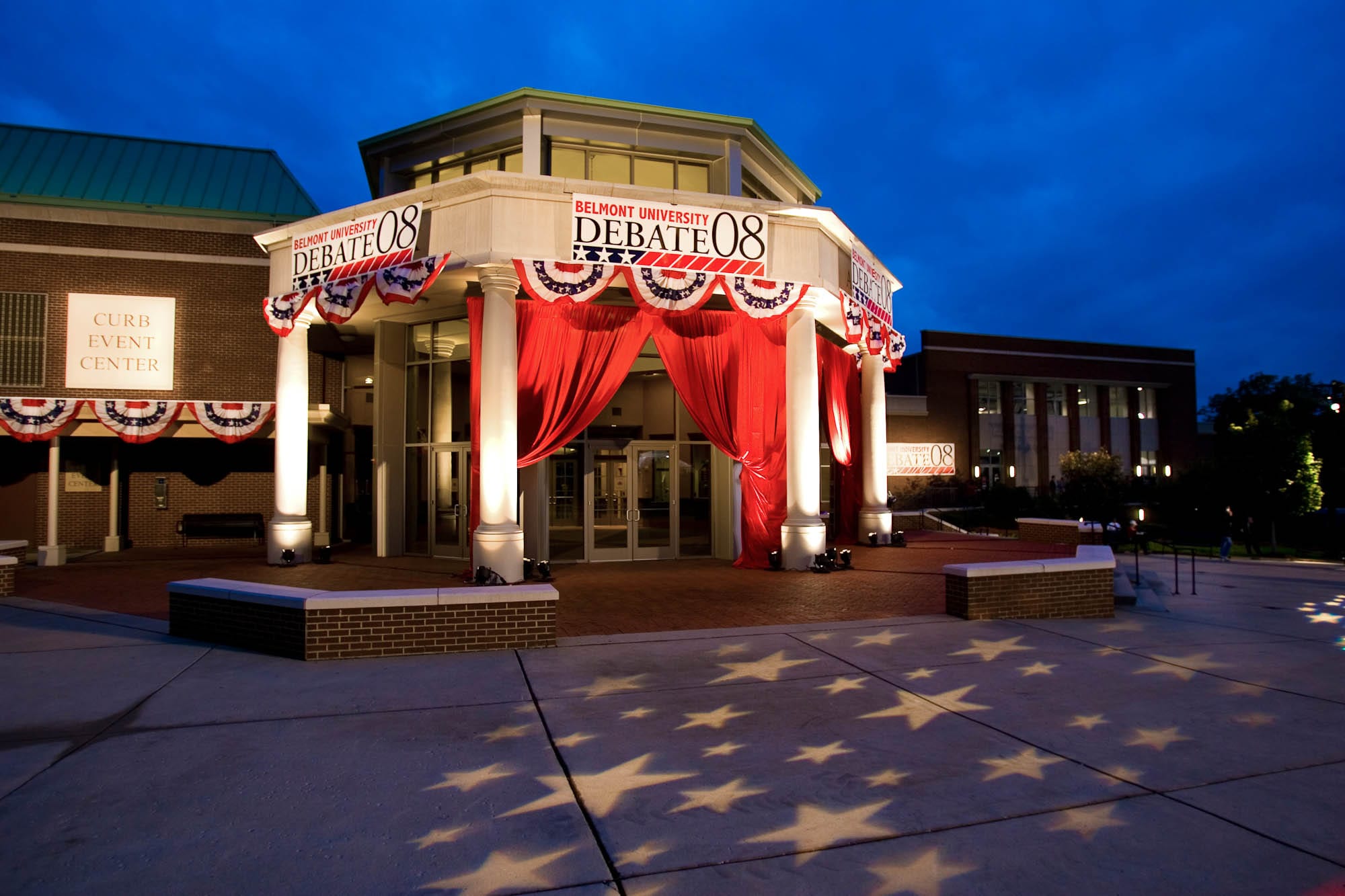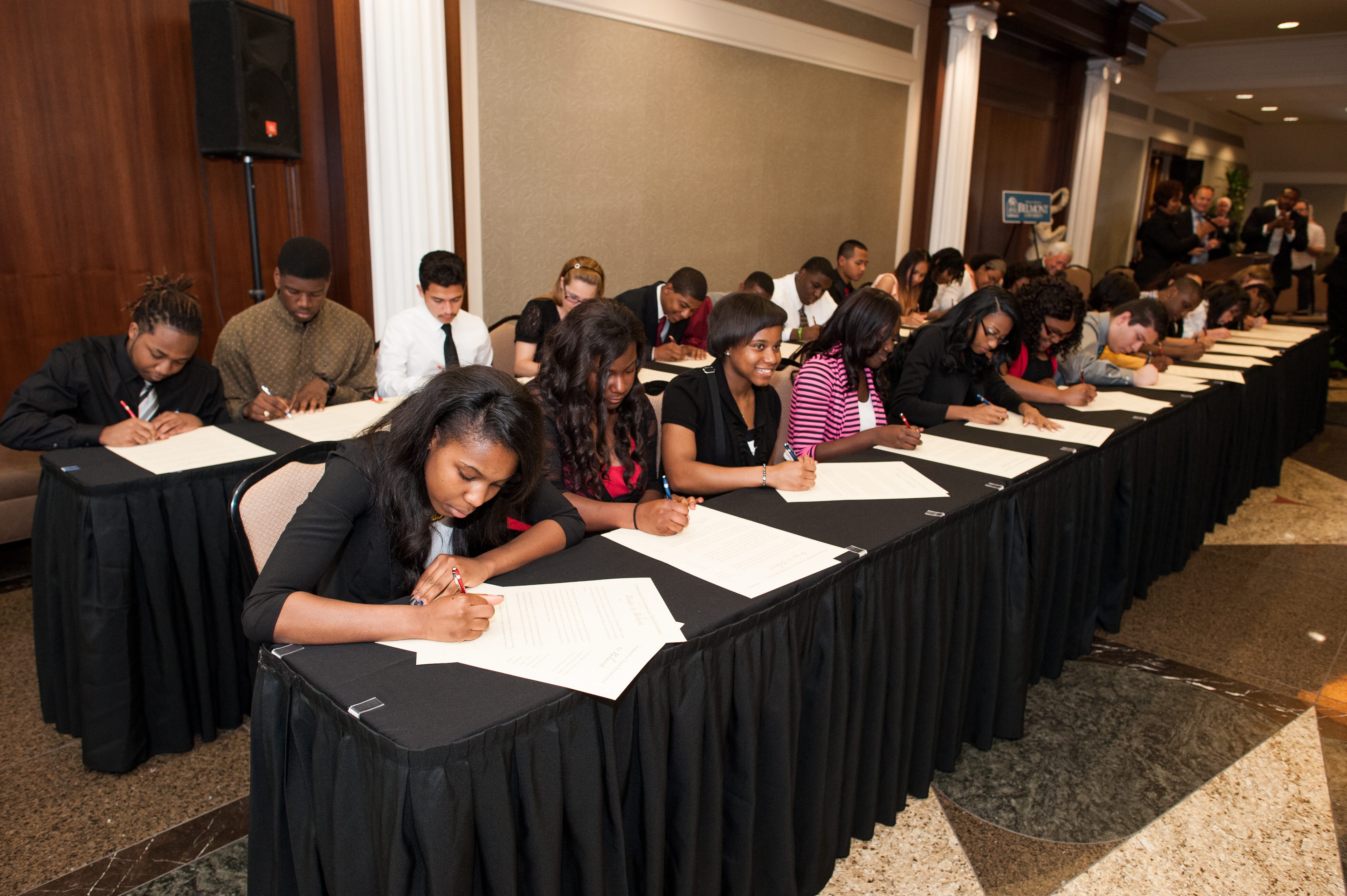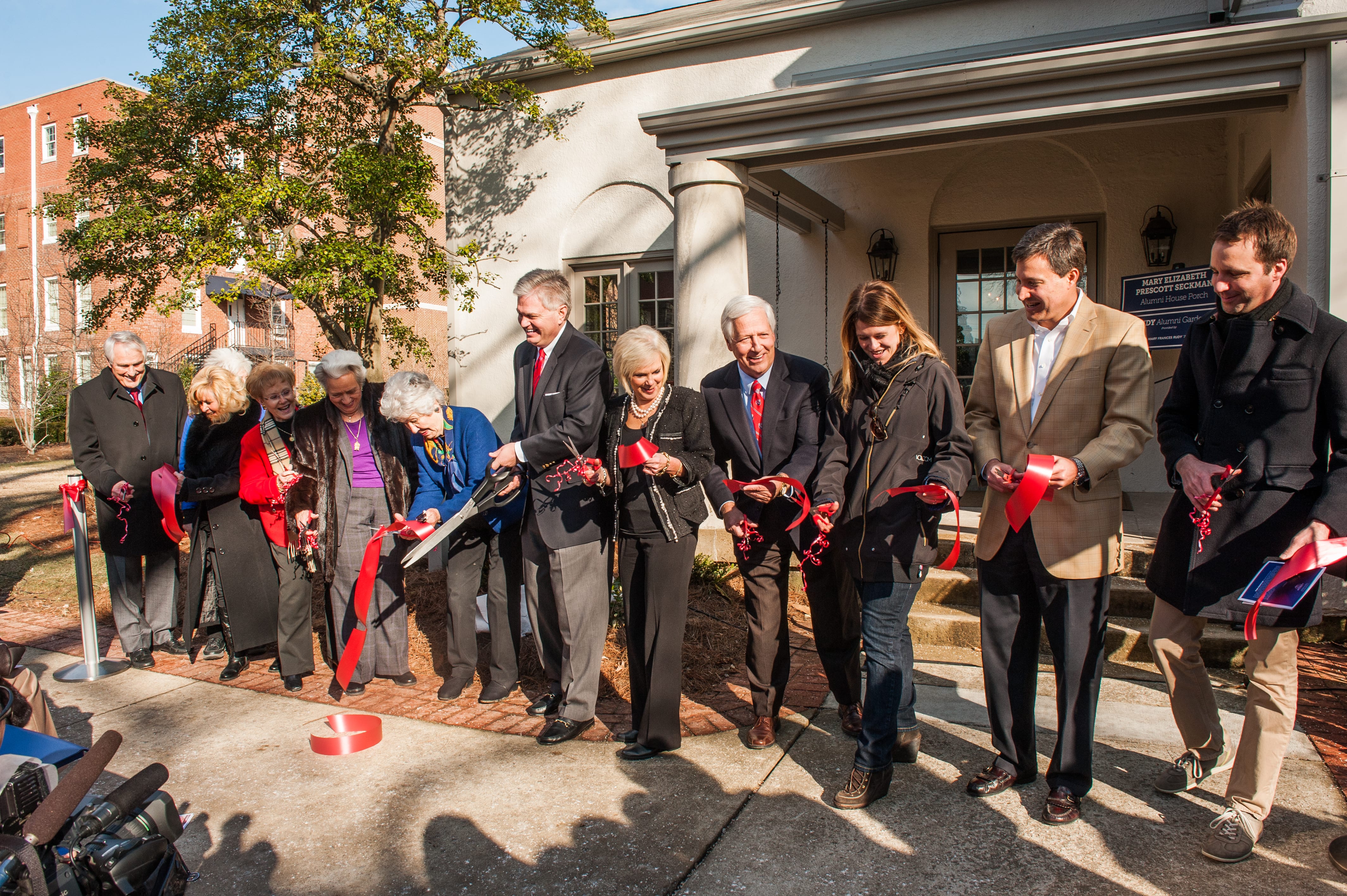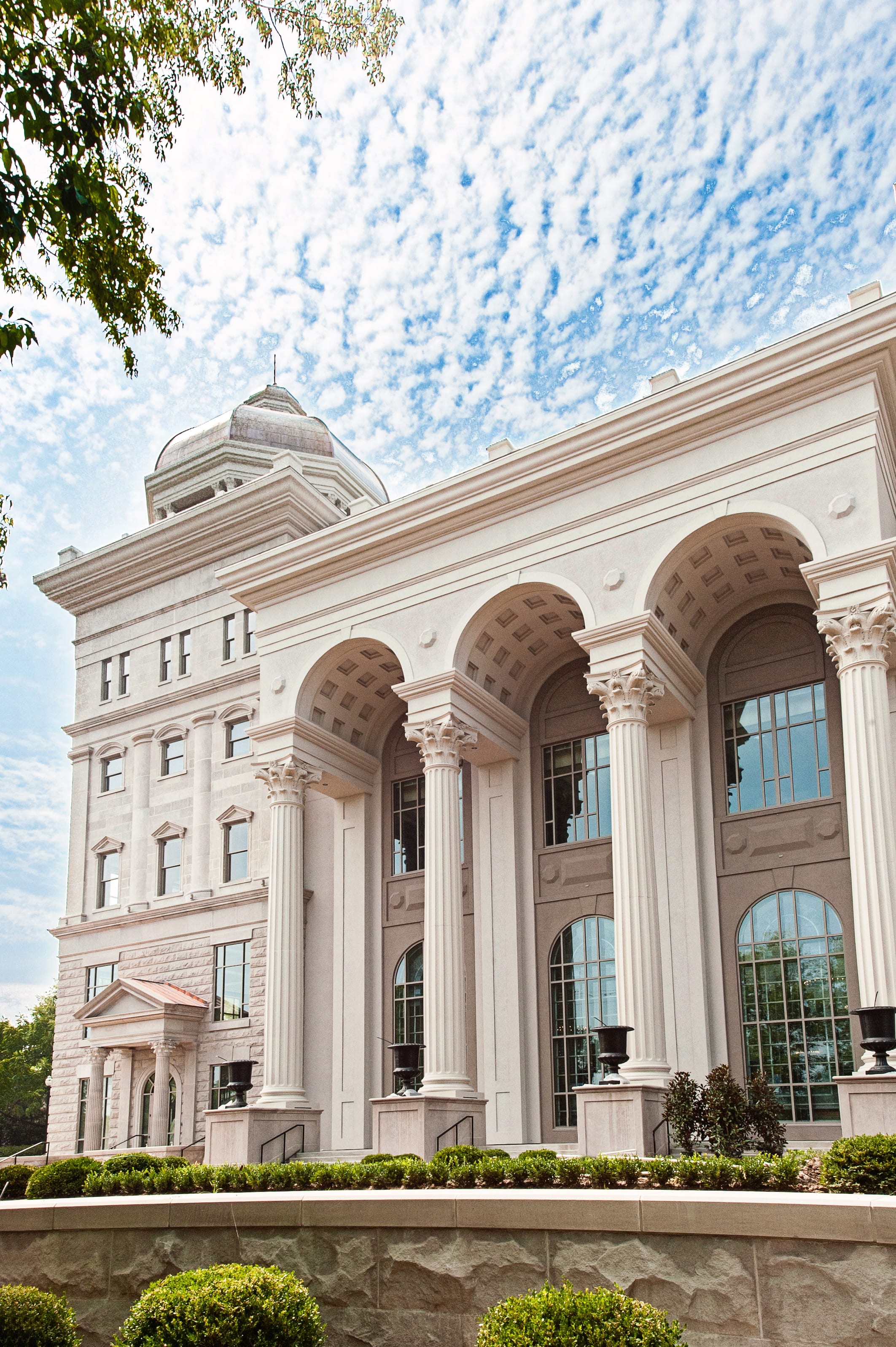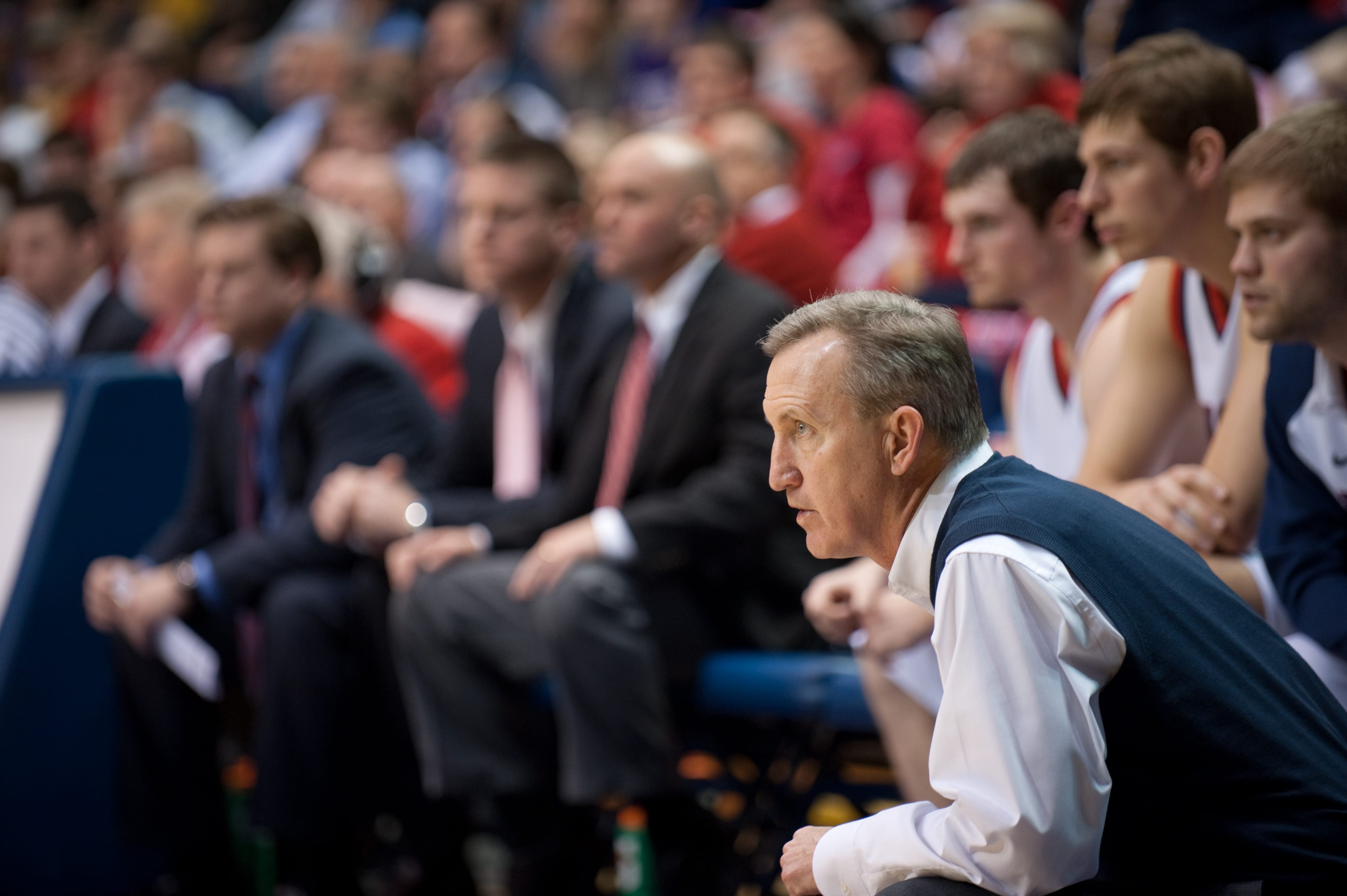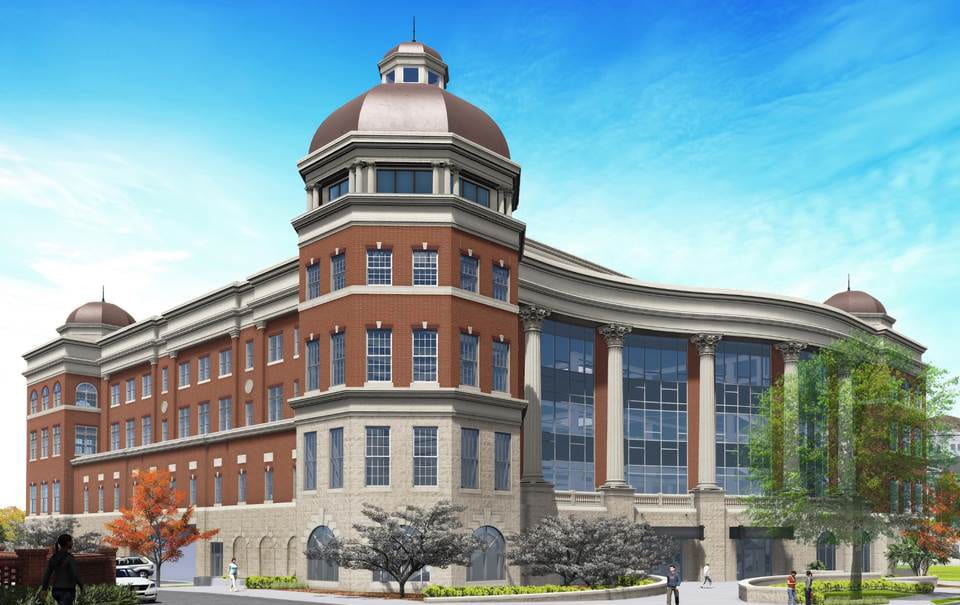Belmont’s rich history tells a story of determination, commitment and faith. The timeline below highlights a number of moments throughout the institution’s 125 years that have contributed to the University we celebrate today.
1889

Belmont founders Susan L. Heron and Ida E. Hood choose the dilapidated, antebellum former Belle Monte estate site as the grounds for what is now known as Belmont University. The Bell Tower, Belmont’s now famous cornerstone, inspired the duo to push forward despite the property’s condition, as they later noted “It was the old tower that did it.”

September 4, 1890

With 90 enrolled students and $60 tuition, Belmont College for Young Women opens, bucking traditional finishing schools and providing cultural, intellectual and social learning and the empowerment of “lives of purpose.”

1913

1922

Ward-Belmont is home to the production of Nashville’s first radio broadcast, a concert by Pianist Philip Gordon before a live audience of Ward-Belmont students and their families.

November 17, 1934

In the wake of the Great Depression, FDR visits campus with First Lady Eleanor Roosevelt. Classes are suspended, and students welcome the presidential brigade to campus.

Late 1950

Due to bank debts and intimidating endowment requirements, Ward-Belmont’s Board begins looking for new options.

February 27, 1951

Spring, 1951

Ward-Belmont becomes a co-educational, four-year institution, and the former Ward-Belmont preparatory school moves to a 26-acre estate across town. Enrolling 161 girls during its first year, the school would continue on to become Harpeth Hall, one of the finest schools for girls in the nation.

May 1951

The newly appointed board of trustees meet to choose a name for the school. After going through a number of ideas, the decision is made – Belmont College.

April 27, 1959

Dr. Herbert Gabhart, pastor of Memphis’s McLean Boulevard Baptist Church, accepts an offer to become Belmont’s President.

March 11, 1965

Belmont’s Board unanimously passes the recommendation to admit any student that meets requirements, regardless of race. Additionally, Dr. Gabhart signs the Certification of Assurance of Compliance with Provisions of Civil Right Act of 1964.

1966

Belmont begins construction on an auditorium and fine arts center, and with a gift of $250,000, Nashville businessman and philanthropist Jack. C Massey earns naming rights. At the dedication, Massey shocks Dr. Gabhart by announcing his desire to also fund a state-of-the-art business program at Belmont.

1968

Coach Betty Wiseman launches Belmont’s women’s basketball program, the first of its kind in the south.

Spring 1970

Fannie Delores Valree is the first African-American student to graduate from Belmont College, earning a Bachelor’s of Science degree.

1971

Professor Robert E. Mulloy launches an Introduction to Music Business course, based on a suggestion from music legend Roy Acuff, and the school’s music business program is born.

December 1972

Blanton Hall, a cornerstone for Belmont College’s campus, burns down taking with it registrar records, in-progress faculty dissertations and the College’s library, an estimated $2 million in damages.

1982

Dr. Gabhart retires as president of Belmont College and moves into the position of Chancellor, one he would serve in for 27 more years. During his time as president, enrollment grew from 365 to more than 2,000, and the budget grew from $480,000 to $8 million. Dr. Bill Troutt, Belmont College executive vice president, steps into the role of president after Dr. Gabhart’s retirement, making him the youngest college president in the U.S.

1986

After being sold for desperately needed funds, Troutt and Belmont Trustee Drew Maddux bring the carillon bells back to the Bell Tower. Faculty, staff, students and neighbors gather to welcome the bells back home.

1999

Because of Troutt’s push for athletic programs to be more widely recognized, Belmont officially becomes a member of NCAA Division I.

2000

2003

Belmont opens the Beaman Student Life Center, Curb Event Center and Maddox Grand Atrium, a $52 million, three-building athletic and student life complex that further illustrates Belmont’s commitment to the student experience, both in and out of the classroom.

November 2007

A lawsuit between Belmont and the Tennessee Baptist Convention reaches a mutually agreed upon resolution. With the settlement, Belmont honors its Baptist heritage but steps forward as an independent, ecumenical Christian university with no denominational ties.

October 7, 2008

The 2008 Town Hall Presidential Debate is held at Belmont University with NBC News’ Tom Brokaw moderating the debate between then Senators John McCain and Barack Obama. With the debate comes full campaigns along with national and international media attention.

October 7, 2009

Belmont announces its intention to open a College of Law, the first newly accredited law school in Middle Tennessee in nearly 100 years.

2011

After a lengthy process requiring buy-in from both sides, Belmont funds the renovation and creation of Rose Park in the neighboring Edgehill community. Rose Park serves as a constant reminder of the partnership between Belmont, the city and the neighborhood.

March 2013

Belmont launches the Bridges to Belmont program, designed to enroll 26 qualified, high potential students from Metro Nashville Public Schools who may not have previously been able to consider Belmont as an option.

February 10, 2014

Following the renovation of an original club house, the Foutch Alumni House opens to welcome alumni “back home” with open arms.

August 2014

January 2015

Basketball legend and Head Coach Rick Byrd becomes the 25th head coach in NCAA Division I men’s basketball history to win 700 games.

August 2015

Belmont opens its newest addition – a four-story, 116,000-square-foot Academic and Dining Complex that will house campus’ new Dining Hall, Media Studies Program and the Mike Curb College of Entertainment and Music Business.

Today

Investing more than half a billion dollars in the University’s brick and mortar, Belmont’s team has put just as much into what President Fisher calls the University’s most valuable asset – its people. Ranked No. 5 in the Regional Universities South category by U.S. News & World Report, Belmont consists of approximately 7,300 students. With more than 80 areas of undergraduate study, 22 master’s programs and five doctoral degrees, there is no limit to the ways Belmont can expand an individual’s horizon.

